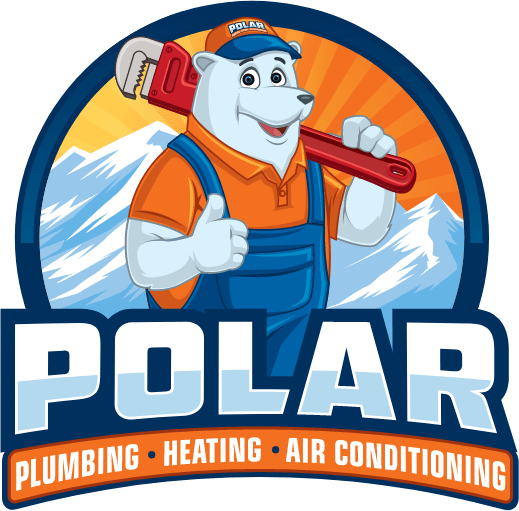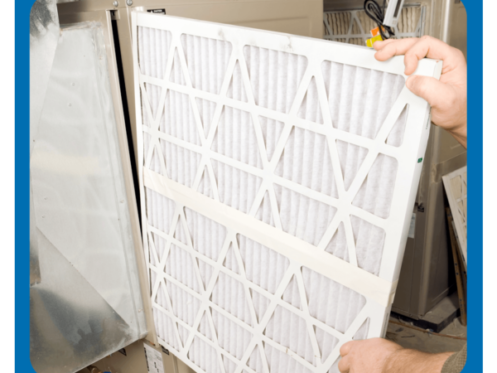You’re probably aware on some level that air filters are a necessary part of your heating and cooling systems. However, you might be surprised to learn just how critical they are. They serve multiple purposes in your HVAC system. What’s more, they’re built into both your furnace and your air conditioner. No matter what time of year it is, your HVAC system is working hard behind the scenes to keep you comfortable.
There will come a day when you need to clean your filters. There will also come a day when you need to replace them entirely. Consider this your guide to understanding HVAC filters and their general upkeep.
How Your HVAC System Works
Before you can understand air filters, you need to understand the basic infrastructure of furnaces and air conditioners.
Without getting too deeply into their mechanics, both of these appliances play a role in the airflow within your home. Specifically, they’re responsible for temperature changes in the air. They have a complex series of parts to do their jobs, including pumps, coils, vents, and motors. When they’re done generating warm or cool air, they’ll distribute it throughout your home via the ducts in the walls.
This is where air filters come into play.
What Are HVAC Air Filters?
Air filters exist to prevent pollutants from moving through your HVAC systems. These pollutants include but aren’t limited to dirt, dust, pollen, pet dander, and mold spores. They can come from the outdoors when they’re carried in on your clothes, or they can be created and dispersed by general, day-to-day living. Those dust bunnies under the couch might wind up in your air filters, for example.
There are different types of air filters, and they range in size, material type, and filtering efficiency. This can present a challenge when it comes to buying and maintaining them.
Why You Should Clean Your Air Filters
Over time, the air filters in your HVAC systems will start to accumulate debris. They’ll become thick with dust and clogged with granules and particles. This can cause several problems.
For starters, your indoor air quality (IAQ) will take a nosedive. Your HVAC system won’t be able to keep out contaminants anymore, so things like pet hair and mold spores will circulate through your home. You might experience respiratory problems, especially if you have a condition like asthma or allergies.
Another danger is the safety hazard that clogged filters represent. If they become so densely packed with debris that they can’t function anymore, that debris can become a fire risk. They can build up, catch flame, and damage not only your HVAC appliances but your entire home.
Last but not least, dirty HVAC filters will overwork your furnace or air conditioner. They’ll have to operate twice as hard to deliver the same results, which isn’t energy efficient at all. It’ll be bad for the environment and bad for your utility bill. In fact, a utility bill that suddenly goes up for no reason is one of the signs that you need to change your air filters.
Different Types of Air Filters
HVAC filters aren’t universal. You’ll need to buy the right ones if you plan on replacing them.
The first thing to consider is size. While there are standard sizes for furnace and air conditioner filters, they run on a scale, so you’ll need to check and see which ones are used by your own units. The next consideration is material. Air filters come in several types, including:
- Fiberglass
- Polyester
- Pleated
- Electrostatic
Each type has its pros and cons, and some might not be compatible with every HVAC unit.
You’ll also want to look into Minimum Efficiency Reporting Value (MERV) ratings. These are basically measurements for how effectively the air filters work. The higher the MERV, the stronger the filters. Most industry experts recommend a MERV of at least six.
Furnace Filters Versus Air Conditioner Filters
Fun fact: Furnace and air conditioner filters are the same thing. They might be marketed and labeled as different products, but as long as things like size parameters are met, they can be used interchangeably. You don’t have to buy separate filters for each appliance.
How to Change Your HVAC Filters
To change your air filters, you’ll need to find where they’re located in your HVAC units. In furnaces, this is usually the blower compartment. In air conditioners, it’s usually the return duct or the air handler.
Once you’ve located them, it’s time to assess the level of dirt and dust that’s accumulated on their surface. If it looks particularly bad, you might want to call in an HVAC technician to change your filters for you. It can be a tricky process, and you want to make sure that you get it right.
Otherwise, slide out the filter and replace it with a new one. Make sure that you’ve oriented it correctly. If it doesn’t feel like the right fit or the same type of material, don’t force it.
Remember that HVAC technicians are always on hand if you need assistance.
Cleaning Your HVAC Filters
Some homeowners replace their filters as soon as they get dirty. There’s nothing wrong with this; it represents a strong commitment to indoor air quality. However, there are also situations where homeowners might decide to clean their filters before throwing them away. There are also “permanent” HVAC filters designed to be washed rather than disposed of.
If you want to clean your own HVAC filters, you’ll have several options in terms of methodology. Vacuuming can be a quick and easy fix. Another solution is to rinse off your filters with a hose or sink sprayer. For a deeper clean, you might soak your filters in a special cleaning mix before rinsing and drying them.
As always, if you have any questions about HVAC filter maintenance, don’t hesitate to reach out to an HVAC technician.
How Often Should You Change Your HVAC Filters?
Most industry experts will recommend changing your HVAC filters every 1 – 3 months. You might be able to go longer between replacements if you’ve purchased high-efficiency filers.
Another consideration is how hard your air filters are working. If you have multiple pets, for example, or if you’re living in a dusty climate or one with a heavy pollen season, you might need to change your filters more often.
A good rule of thumb is to keep your eye on your HVAC filters. Check them regularly. When you notice a large accumulation of dirt, clean them or swap them out.
Filter Replacement for Your HVAC System
Filters are a critical part of your HVAC system, so if they need cleaning, replacing, or anything else, give us a call at Polar Plumbing, Heating & Air Conditioning in Newburgh. We offer a wide variety of both heating and cooling services that range from the installation of new appliances to the maintenance of older ones. We also specialize in plumbing, so we can help with things like drain cleaning, water heater repair services, and more.

